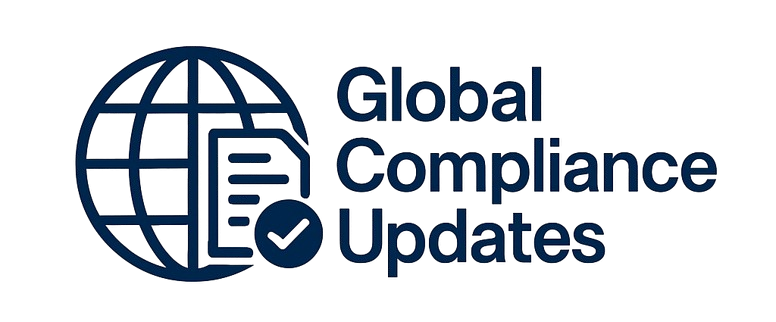If you do any work that will be reported to the US Food and Drug Administration (FDA), Environmental Protection Agency (EPA), or Occupational Safety and Health Administration (OSHA), your work must be done under GLP. All methods must be validated, the proof that they do what is claimed. Common criteria are accuracy, precision, linearity, range, and several more.
This webinar will discuss the best practices of analytical method validation, including components of validation, how to include critical reagents comparison, selectivity experiments, assessment of stability, the importance of communication between the development and the validation labs, and accuracy of transfer documents (SOPs). Participants will understand - Is validation a regulated activity? When to pull the trigger for validation? Importance of suitability testing.
WHY SHOULD YOU ATTEND?
Any laboratory that supports products for sale or use in the United States must follow Good Laboratory Practices (GLP), a comprehensive system that guarantees the validity of results. If you work in pharmaceuticals, chemicals and petrochemicals, and environmental analyses then you are mandated to be following GLP. One of the major tasks in GLP is the validation of an analytical method.
The new pharmaceuticals are very often completely new compounds, structures never studied before by chemists. Their properties – such as solubilities and acid-base nature, are unknown. Synthetic reactions may make many similar types of molecules, including structural and optical isomers.
The methodologies that mean US Food and Drug Administration compliance with GLP require a separation to be able to separate and identify all major, minor, and trace components. It is no longer just determining the purity of the main component. Each minor contaminant or degradation product is also important in GLP. This analytical method validation webinar will provide practical tips on how to validate an analytical method under the GLP requirements. It is recommended for laboratories that are under or want to be under, Good Laboratory Practices (GLP).
AREA COVERED
- Method Validation
- The criteria for a method
- Statistical requirements
- Maintaining compliance
WHO WILL BENEFIT?
This webinar will provide valuable assistance to the following personnel from regulated laboratories in the pharmaceuticals, chemicals, and petrochemicals industry:
- Analysts
- Lab Supervisors and Managers
- QA managers and personnel
- Consultants
- Validation Specialists
- Chemists
Any laboratory that supports products for sale or use in the United States must follow Good Laboratory Practices (GLP), a comprehensive system that guarantees the validity of results. If you work in pharmaceuticals, chemicals and petrochemicals, and environmental analyses then you are mandated to be following GLP. One of the major tasks in GLP is the validation of an analytical method.
The new pharmaceuticals are very often completely new compounds, structures never studied before by chemists. Their properties – such as solubilities and acid-base nature, are unknown. Synthetic reactions may make many similar types of molecules, including structural and optical isomers.
The methodologies that mean US Food and Drug Administration compliance with GLP require a separation to be able to separate and identify all major, minor, and trace components. It is no longer just determining the purity of the main component. Each minor contaminant or degradation product is also important in GLP. This analytical method validation webinar will provide practical tips on how to validate an analytical method under the GLP requirements. It is recommended for laboratories that are under or want to be under, Good Laboratory Practices (GLP).
- Method Validation
- The criteria for a method
- Statistical requirements
- Maintaining compliance
This webinar will provide valuable assistance to the following personnel from regulated laboratories in the pharmaceuticals, chemicals, and petrochemicals industry:
- Analysts
- Lab Supervisors and Managers
- QA managers and personnel
- Consultants
- Validation Specialists
- Chemists
Speaker Profile
 John Fetzer
John Fetzer
John C. Fetzer has had over 30 years of experience in laboratory compliance, including developing methods, writing SOPs, training, and auditing. He has served on the editorial advisory boards of the Journal of Chromatography, Analytical Chemistry, and Analytical and Bioanalytical Chemistry.
Upcoming Webinars

The Importance of the first 5 seconds when presenting

Project Management for administrative professionals

How to Reduce Human Error in a GMP Manufacturing Floor

Trump’s Executive Orders on DEI and Disparate Impact, and t…

How Accountants Can Use Chat GPT Effectively


The OBBBA Era & Beyond: Your 2025 Playbook for Compliance a…

Pivot tables beginner to advanced + 20 advanced Pivot table…

Changing Behavior: Why Rewards and Punishments Often Aren't…

Launch Your Career: The Ultimate Guide for Emerging Profess…

ChatGPT Unlocked: A Beginner’s Guide to AI and ChatGPT

Managing Toxic & Other Employees Who Have Attitude Issues

Data Integrity – In compliance with CSA, 21 CFR Part 11, Sa…

Effectively Handle Toxic People for Better Productivity and…

Re-imagine Finance & Accounting Made Simple. Three Webinars…

Employee Handbooks: 2025 Critical Issues

Better Business Writing-How to Write Right

The five qualities every successful leader must develop



How to Lead and Manage a Narcissistic Employee

Use of AI and GPT for Finance Professionals

ChatGPT and Project Management: Leveraging AI for Project M…

Analytical Method Validation Under Good Laboratory Practic…

Harassment, Bullying, Gossip, Confrontational and Disruptiv…

Excel What-If-Analysis Decision-Making Tools

How to Write Contracts for Procurement Professionals

Maximizing Productivity with ChatGPT: AI Solutions for HR, …

I-9 Audits: Strengthening Your Immigration Compliance Strat…

Dealing With Difficult People: At Work & In Life

Excel - Reporting Simplified - Learn Pivot Tables from Scra…



Retention Starts Here: Stop Losing Your Critical Talent and…

Turning Workplace Conflict into Positive Connection

Project Management for Non-Project Managers - How to commun…


The Business Case for LGBTQIA+ Inclusion in the Workplace: …

Conquer Toxic People - Learn To Protect Yourself And Get Yo…


AI-Powered Change Leadership Operationalizing AI: Practical…

AI and Human Resources: The Great Opportunity!

Cyber Security Incident Response Team Training Program

Transforming Anger And Conflict Into Collaborative Problem …


The Courage to Speak: Overcoming Fear and Owning the Room

Finance & Accounting 101 Simplified

6-Hour Virtual Boot Camp on Microsoft Power BI
